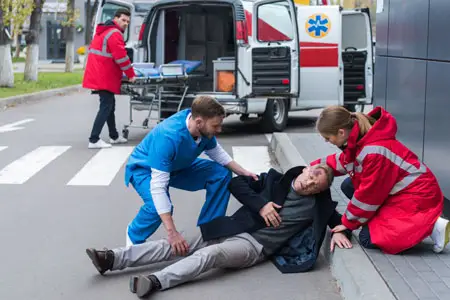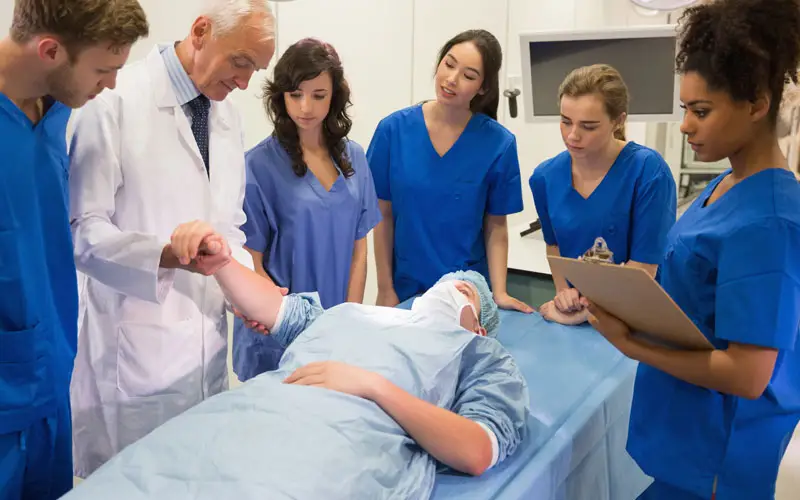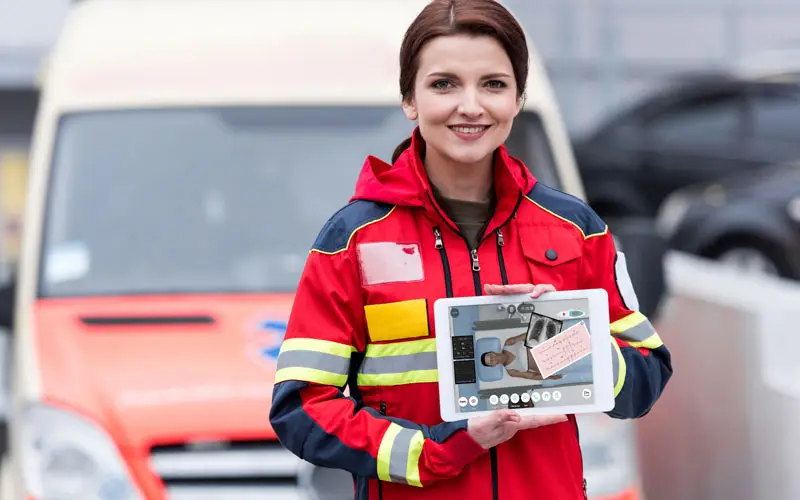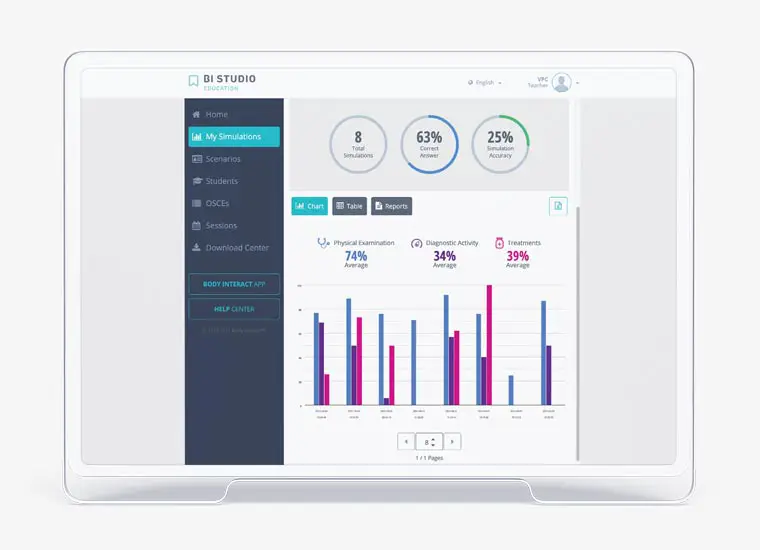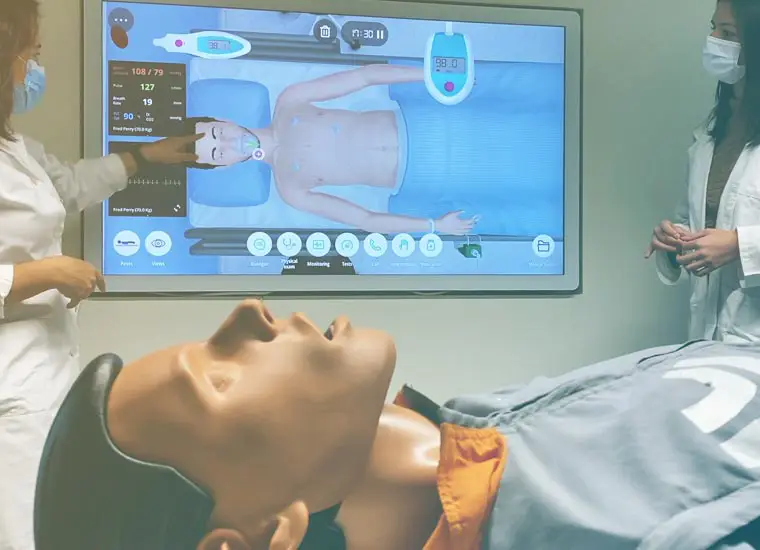
Key skills of EMS providers cannot be learned just through books
-
Position trainees in virtual real-world conditions in which they are expected to apply their skills
-
Challenge trainees to think critically with virtual patients in the street, in homes or in an ambulance environment
-
Develop higher learning levels and knowledge retention over traditional methods in patient analysis, synthesis and evaluation
Clinical Scenarios Library
Suitable for
Emergency Medical Technician (EMT)
Paramedic
Allergy/Immunology
Anaphylactic shock
Anaphylaxis
Cardiology
Arrhythmias
Shock
Acute coronary syndrome
Hypertension
Endocrinology
Diabetes and glucose metabolism
Hematology
Sickle cell disease
Internal medicine
Influenza
Hypoglicemia
Severe dehidration
Respiratory distress
Septic shock
Neurology
Cerebrovascular disease/Stroke
Epilepsy/Seizures
Obstetrics
Preeclampsia
Pregnancy
Respiratory
Asthma
Pulmonary edema
Pneumothorax
Airway clearance
Respiratory infection
Toxicology
Alcohol intoxication
Carbon monoxide poisoning
Drug intoxication
Opioid intoxication
Trauma
Chest trauma
Abdominal trauma
Critical care illness
Traumatic brain injury
Educator's Tools
Leverage your teaching experience and reach your learning objectives
BI Studio
Track your learners’ performance by having real-time detailed dashboards and the ability to set up and run OSCEs easily
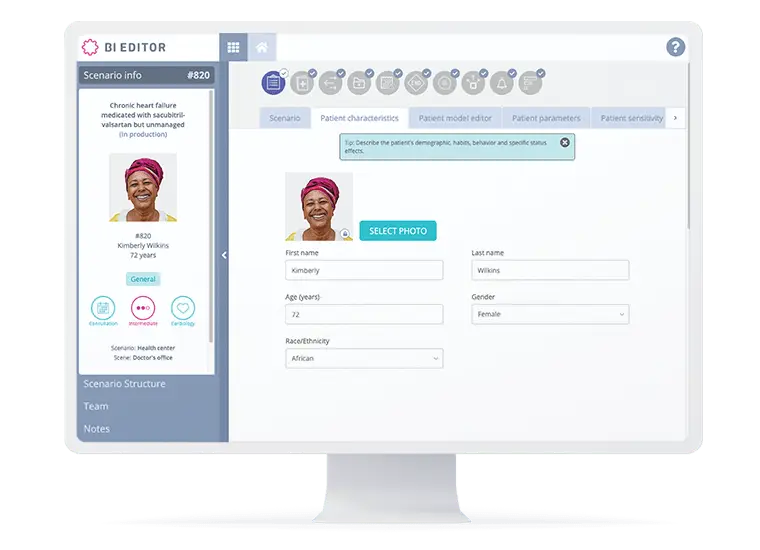
BI Editor
Adapt existing scenarios or create your ones from scratch to match your curricular needs and learning objectives
Simtegration
Integrate virtual patients with task trainers, low- or high-fidelity manikins to provide a more comprehensive learning experience
